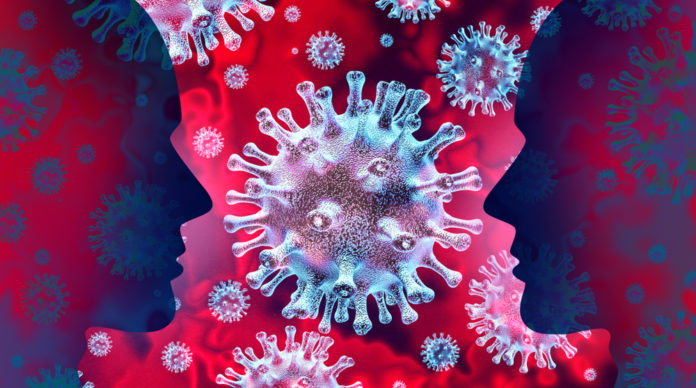Source: The Conversation (Au and NZ) – By Paul Komesaroff, Professor of Medicine, Monash University
The global coronavirus pandemic poses immediate, wide-ranging ethical challenges for governments, health authorities, health workers and the public.
At the heart of these challenges is how best to respond to COVID-19 urgently, yet safely and fairly.
How do we ensure rapid development and delivery of vaccines and other medicines, ethically and with proper oversight? How do we ration and distribute limited healthcare resources? How many of our personal freedoms are we willing to forgo to contain the pandemic?
How do we do this while protecting the vulnerable?
Read more: Why public health officials sound more worried about the coronavirus than the seasonal flu
This situation is unique
We ask these hard questions in a unique and rapidly changing environment, with the number of cases and deaths due to COVID-19 rising daily, and with increased global mobility leading to unstoppable transmission across borders.
The urgency of the situation is even forcing us to rethink how we answer these questions.
Traditionally, we make ethical decisions after open dialogue to achieve mutual understanding.
Such dialogue is placed under stress in times of crisis where, because decisions have to be made rapidly, authorities seek to suspend or dispense with time-honoured checks and balances.
However, it is precisely in these potentially dangerous situations that we most need nuanced ethical conversations.
Here are three key examples of the ethical challenges we face.
1. How do we develop new drugs quickly yet safely?
The first is how to balance the unknown risks associated with developing a vaccine or other drugs with the need for a response rapid enough to limit spread of the virus.
Part of that challenge is to ensure there is enough oversight of clinical trials when we are also accelerating the delivery of new therapies.
We will have to decide whether it is appropriate to accept higher levels of risk to research participants and patients when the stakes are higher.
Read more: Infecting healthy people in vaccine research can be ethical and necessary
As well as the risks there are also potential benefits.
It has taken many years to construct an elaborate framework to ensure clinical research is conducted ethically.
However, under the pressure of the current emergency we may be able to find ways to reduce bureaucracy and red tape, speed up decision-making and make the system more responsive.
These changes may serve us well in the future, when we return to “business as usual”.
Read more: Here’s why the WHO says a coronavirus vaccine is 18 months away
2. How prepared are we to give up some personal freedoms?
Balancing our personal freedoms – such as freedom of movement and the right to choose or decline medical treatment – with limiting the spread of disease is another major challenge.
We have seen disturbing images from Wuhan in China of officials apparently detaining citizens walking along the street, or dragging them from their homes.
Australia has announced plans for legislation allowing people to be detained or isolated when they are said to pose a threat to public safety.
At the same time, community organisations are mobilising to protect and support vulnerable members of society by providing food or other services. Health practitioners will continue to serve their patients with courage and dedication, even when this places them in danger.
How can we ensure such ethical values prevail over increasing authoritarian power?
How much of our personal freedom will we be prepared to give up in support of public health demands? Will we accept self-quarantine at home or isolation in a medical facility? Will we allow authorities to enter people’s homes and arrest infected people?
There is a great risk the emergency measures introduced will continue and be absorbed into everyday practice when the crisis ends. Will we be able to prevent this?
3. How do we allocate scarce resources?
Finally, there is the question of how best to allocate scarce resources, such as drugs, access to intensive care treatments, personal protective equipment, staff and research funding.
As the number of cases increases globally the number of critically ill patients will quickly exceed the available facilities, requiring us to make difficult choices.
Read more: Coronavirus: should frontline doctors and nurses get preferential treatment?
We will have to decide who is treated where, who has access to scarce drugs or technologies, how and for whose benefit health professionals and emergency services are deployed, and how food, protective clothing and other items are rationed.
Medical professionals have long been familiar with such discussions, which are now likely to become more routine.
Read more: How do we choose who gets the flu vaccine in a pandemic – paramedics, prisoners or the public?
What lies ahead?
We will need to make these decisions in a democratic way with public involvement, rather than leaving them to experts or government authorities.
We will need to struggle to preserve the ethical values of mutual respect and responsibility, fairness, and care for vulnerable members of society, which may be difficult in our present harsh and uncompromising times.
There are no easy solutions to satisfy everyone. However, at least we can start talking about these issues. For now, maybe that’s the best we can do.
– ref. The coronavirus pandemic is forcing us to ask some very hard questions. But are we ready for the answers? – https://theconversation.com/the-coronavirus-pandemic-is-forcing-us-to-ask-some-very-hard-questions-but-are-we-ready-for-the-answers-132581





